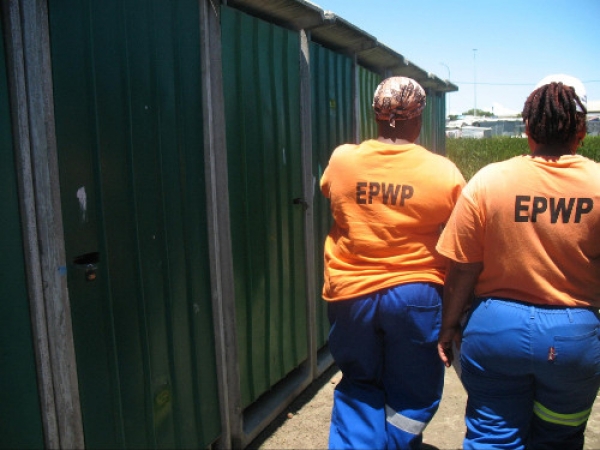City’s janitorial programme to be scrapped in some areas

The City of Cape Town will not be renewing the contracts of janitors employed to clean flush toilets in some informal settlements in the city.
Earlier this month, the City’s Mayco member for Utility Services, Ernest Sonnenberg, announced that the City would be phasing out the janitorial programme in several areas because of ongoing disputes with community leaders, excessive vandalism and concerns over the safety of workers.
However Sonnenberg said staff from the City’s Water and Sanitation department will soon be deployed to take over the cleaning and maintenance of flush toilets. The janitors currently employed in the programme live in the communities where they work, while the additional staff that will take over from them are city employees who are not part of the special janitorial programme.
The City’s initiative to contract janitors who live in their communities was first implemented in Khayelitsha in May 2012, which included the daily cleaning of flush toilets and the area around it, as well as reporting any major repairs where needed.
The decision to cut part of the programme follows a review done by the City in late 2014 which found the programme to be ineffective in several informal settlements including, parts of Khayelitsha, Phillippi, Gugulethu and Hangberg.
However, the City says it is still looking at alternative ways to manage service delivery.
Sonnenberg said it was also the responsibility of residents to ensure the cleanliness of the toilets and not to put items like nappies, bottles and cloths into the toilets.
“We need to ensure our financial resources are used effectively, so we need to rethink how money is being spent in areas where the programme isn’t working. We need the help of residents to prevent vandalism and to report any issues immediately,” he said.
Sonnenberg said in addition to the vandalism, there were ongoing disagreements in the community about the recruitment of janitors and issues around problems not being reported immediately.
The review found that the programme worked well in 83% of the areas and in others improvements where possible.
Dustin Kramer of the Social Justice Coalition (SJC) said that instead of shutting down some janitorial services, the City needed to come up with a plan on how it was going to make the service work better in the areas where it’s currently failing.
Adelaide Tsobo is a 50-year-old mother of four children who is a contractor on the janitor programme in Khayelitsha’s YA section, which is an informal settlement. She has been a janitor since September last year. While Tsobo’s contract only ends in a few months, she said there was no communication from her supervisor on the termination of her contract.
“My contract only expires in March and my colleague’s [ends] on 21 January. Our supervisor didn’t tell us anything so we will be out of jobs. I only heard about this from those [janitors] working in other places and when the SJC came to us. I depend on my salary to support my family. I don’t know what is going on,” she said.
YA residents, Ncapayi Wongama and Zodwa Kwentela, were upset to hear the janitors would no longer operate in their area.
“We only complain because they [janitors] are not given cleaning materials so the toilets smell. We want them to keep working here,” said Kwentela.
On Thursday, Sonnenberg assured that none of the existing contracts would be ended prematurely. “The phasing out per area is based on the dates that the current janitors’ contracts end. The majority of contracts expire between the end of January and mid-April,” he said.
Sonnenberg also said the City has received some “indirect” complaints of the pine powder cleaning agent causing eye and skin irritations. “We urge janitors to report problems so we can send the necessary treatment. We will again consult with janitors and supervisors of YA to address the confusion and ensure they can use the cleaning material safely and hygienically,” he said.
Support independent journalism
Donate using Payfast

Don't miss out on the latest news
We respect your privacy, and promise we won't spam you.
Next: NSRI’s water safety education a “drop in the ocean”
Previous: What Africa’s premier soccer tournament means to Equatorial Guinea

This article is licensed under a Creative Commons Attribution-NoDerivatives 4.0 International License.
